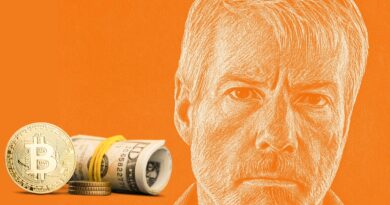Decentralized Finance Rises in Yemen Despite Ongoing US Sanctions
In a country like Yemen, where daily life is shaped by conflict and economic sanctions, the idea of using regular banking might sound impossible. But something surprising is happening—decentralized finance, or DeFi, is stepping in to fill the gap left by a limited financial system and strict regulations.
As traditional banking options become harder to access, Yemenis are turning to digital currencies and blockchain-based tools to send, receive, and manage money. Let’s dive into how and why DeFi is rising in Yemen despite ongoing US sanctions.
What Is Decentralized Finance?
If you’re new to the term, Decentralized Finance (DeFi) is a way to use financial services—like transferring money, saving, lending, or trading—without relying on banks or governments. Instead, these services operate on blockchain networks, such as Ethereum or Bitcoin.
Unlike traditional banking:
- You don’t need to open an account with your ID or address.
- You don’t need approval from a government or financial institution.
- You’re in full control of your money—no middlemen involved.
Sound futuristic? In places like the U.S. or Europe, maybe. But in Yemen, this idea isn’t just a trend—it’s a necessity.
Sanctions and Financial Isolation
Since the civil war began in 2014, Yemen’s economy has been hit hard. On top of that, US sanctions have made it nearly impossible for Yemen’s central bank and financial firms to connect with the global financial system.
Banks in Yemen face challenges such as:
- Restrictions from international banks
- Blocked money transfers
- Frozen assets
- Limited access to dollars or foreign currency
Even local sending services, like the hawala network (an informal money transfer system used heavily across the Middle East), are not immune. Recently, many havala businesses have faced US scrutiny for possible connections to “unauthorized financial activity.” As a result, more Yemenis are getting shut out of basic money services.
A Digital Workaround: Why People Are Choosing Crypto
Now put yourself in this position: you’re living in a region cut off from international banking. You want to receive money from a relative living abroad or pay for essential goods. But you can’t go through a bank or use PayPal.
That’s where cryptocurrencies come in.
Many Yemenis are finding that Bitcoin, Ethereum, and stablecoins like USDT offer more freedom than their country’s closed economy. These digital currencies let people:
- Receive payments from overseas
- Hold money in a stable form, avoiding their local currency’s inflation
- Access savings and lending options not tied to traditional banks
Because there are no middlemen, these platforms aren’t influenced by US sanctions or local financial rules. People can transact peer-to-peer using mobile phones and internet access—which is surprisingly more reachable than a working bank branch in some areas of Yemen.
Key Players in Yemen’s DeFi Growth
You might be wondering—how exactly are people in Yemen learning about these tools? And who helps them get started?
Activists and independent crypto users are using social media tools like Telegram and WhatsApp to share tutorials, answer questions, and guide new users in Arabic. These online communities are essential in a place where financial education is rarely discussed in schools or media.
People also rely on peer-to-peer exchanges for buying or selling crypto, often trading it for goods or local cash. For many, this is the only practical option, since large exchanges like Coinbase or Binance usually restrict access to users in sanctioned countries.
Does This Mean Yemen Is Fully Onboard with Crypto?
Not quite. While interest is growing, most people still face serious obstacles before they can dive into the DeFi world, including:
- Lack of basic financial education
- Low internet access in rural areas
- High volatility in the value of cryptocurrencies
- Government resistance or lack of clear regulation
That said, when compared to the limited options available, it’s no wonder that more people are choosing digital wallets over traditional bank accounts.
Stablecoins: The Most Popular Choice
Cryptocurrencies like Bitcoin may be popular globally, but in Yemen, stablecoins such as USDT (Tether) are often preferred. Why? Because prices stay fixed to real-world currencies like the US dollar.
This stability helps people avoid the dramatic price swings seen in Bitcoin and Ethereum, making it safer for everyday use—whether that’s receiving remittances or paying for imported goods.
Imagine needing to buy rice or flour today and waking up to find your bitcoin value dropped 20%—not ideal, right? Stablecoins help avoid that uncertainty.
What Does The Future Look Like?
While DeFi isn’t widespread in every home in Yemen, its growth shows that people can and will find solutions when traditional systems fail. Whether it’s a small business owner using USDT to import parts or a student receiving crypto for freelance work online, crypto is offering real answers to real challenges.
Looking ahead, we might see:
- More grassroots education movements teaching crypto literacy
- New Arabic-language DeFi tools designed for local users
- Increased remittance activity through decentralized wallets
But for all this to happen safely and at scale, better infrastructure, wider acceptance, and clear understanding of risks are needed.
The Takeaway for You
Whether you’re someone curious about crypto or wondering how global finance reaches people in crisis zones, Yemen’s story highlights an important truth:
Decentralized finance isn’t just about investing—it can be about survival.
And as technology becomes more accessible and users become more informed, tools like DeFi may prove vital in rebuilding lives where banks and policies have failed.
What can you take from this? Next time you think about the use of blockchain or digital wallets, remember that for some people, it’s not about choice—it’s the only option they have.
Curious About Exploring DeFi Yourself?
Before jumping in, take the time to research platforms that work for you. Look for decentralized apps with clear instructions, good reviews, and strong user communities.
Above all, always protect your privacy and understand the laws in your area regarding digital assets.
Because for many around the world—from Yemen to Nigeria to Venezuela—crypto is more than just a buzzword; it represents a path to financial freedom.









